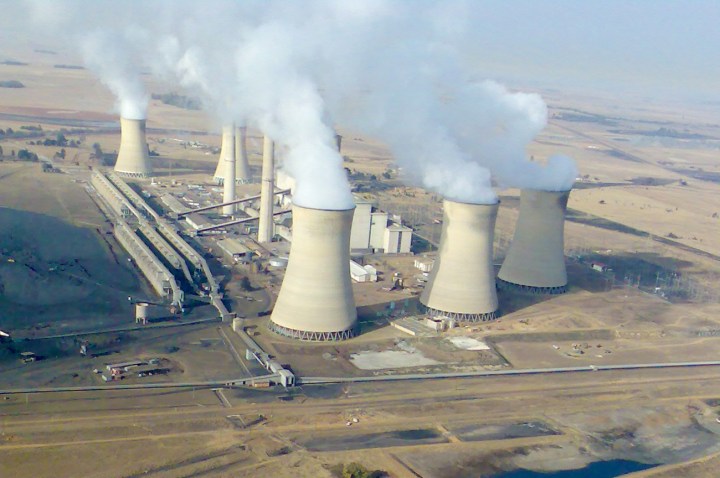Sci-Tech
Renewable energy: a disquieting move from transparent to opaque

A recent public panel debate on renewable energy in South Africa confirmed serious misgivings that multi-billion-rand processes during the next 19 years have degenerated from transparent participation to opaque and sinisterly secret. By CHRIS YELLAND.
On 23 August 2011, EE Publishers hosted an open panel discussion in Midrand, entitled “Renewable Energy in South Africa – going backwards or forwards?”
Key players in the renewable energy sector of South Africa – from government, its legal advisors, Nersa, banking and industry representatives covered the background on where the country finds itself now, as well as the road ahead in the implementation of the ambitious targets in the national integrated resource plan for electricity between now and 2030. This would involve the installation of some 9,200MW of wind generation capacity, 8,400MW of solar photo-voltaic capacity and 1,200MW of concentrating solar plant capacity by 2030.
Thembani Bukula, from the National Energy Regulator of South Africa, detailed the open and transparent two-year stakeholder and public participation process facilitated by Nersa in the lead-up to the promulgation of the renewable energy feed-in tariff (Refit) framework in 2009/10.
Webber Wentzel’s Brigette Baillie, legal advisor to the departments of energy and the treasury, detailed the subsequent abandonment of the Refit framework in May 2011 in favour of an alternative competitive project tender bidding process, on the basis that the former Refit process was illegal and anti-competitive. Webber Wentzel prepared the new project bidding tender process and documents in December 2010, now called the Rebid process.
Ompi Aphane, deputy DG in the department of energy, discussed the new project tender bidding process and its rationale. He acknowledged “we messed up” and gave details of the current request for proposals by his department in early August 2011.
Paul Eardley-Taylor, head of Standard Bank’s energy, utility and infrastructure sector, indicated that, despite initial fears of a loss of interest both locally and internationally, as a result of the sudden change in the procurement framework, Standard Bank’s analysis was that the Rebid process and the associated legal, financial and contractual framework were solid and realistic, and would prove acceptable to investors, financiers and developers.
Johan van den Berg, chief executive officer of the South African Wind Energy Association, said investment in renewable energy generation to 2030 would be about R350 billion, or R18 billion a year. He contrasted this to total foreign direct investment in South Africa of a scant R11 billion in 2010, 70% down on 2009.
Van den Berg generally agreed the Rebid documents were sound, but cautioned there had been a significant loss of trust in the procurement process following the abandonment of the transparent and participative Refit framework in favour of a process prepared behind closed doors, without consultation and transparency, and fundamentally lacking in any form of stakeholder and public participation.
As an example, he pointed to the stringent confidentiality requirements in the RFP / tender enquiry documents, http://eepublishers.co.za/article/confidentiality-requirements-of-department-of-energy-tender-no-doe.html which bind bidders to maintain the documents as strictly confidential under threat of severe penalty. The intention is clearly to prevent wider access to documents by stakeholders, the media and the public, and to restrict access to a tight circle within government, and to bidders with significant vested commercial interests.
While such confidentiality requirements create (perhaps quite unnecessary) suspicion, it is hard to imagine how they serve the broad public interest in a government tender amounting to billions of rands. Not surprisingly, efforts directed at government and Webber Wentzel to answers these questions have so far proved fruitless.
Stakeholders and the general public surely have a justifiable interest in knowing there will be a rational and non-political process. Any lack of transparency and secrecy serves to fuel concerns that a whole gamut of parasitic and non-value-adding parties were lining up again for an even bigger feeding frenzy than that of the R30 billion arms deal, the Chancellor House involvement in the Medupi and Kusile boiler contracts, and other major public sector procurements. DM
Presentations can be downloaded at:
- Ompi Aphane, Department of Energy (160 kB PDF file);
- Thembani Bukula, NERSA (220 kB PDF file);
- Paul Eardley-Taylor, Standard Bank (870 kB PDF file);
- Johan van den Berg, SAWEA (400 kB PDF file).
Read more:
- “Renewables bid represents ‘substantive progress’ but raises compliance burden” by Terence Creamer, Engineering News;
- “SA needs R18bn a year for energy conversion” by Michael Bratt, BusinessLive;
- “Renewable energy – moving forward but a cause for concern” by Lise Pretorius, Financial Mail.
Photo: REUTERS
Chris Yelland is publisher of EE Publishers.





 Become an Insider
Become an Insider